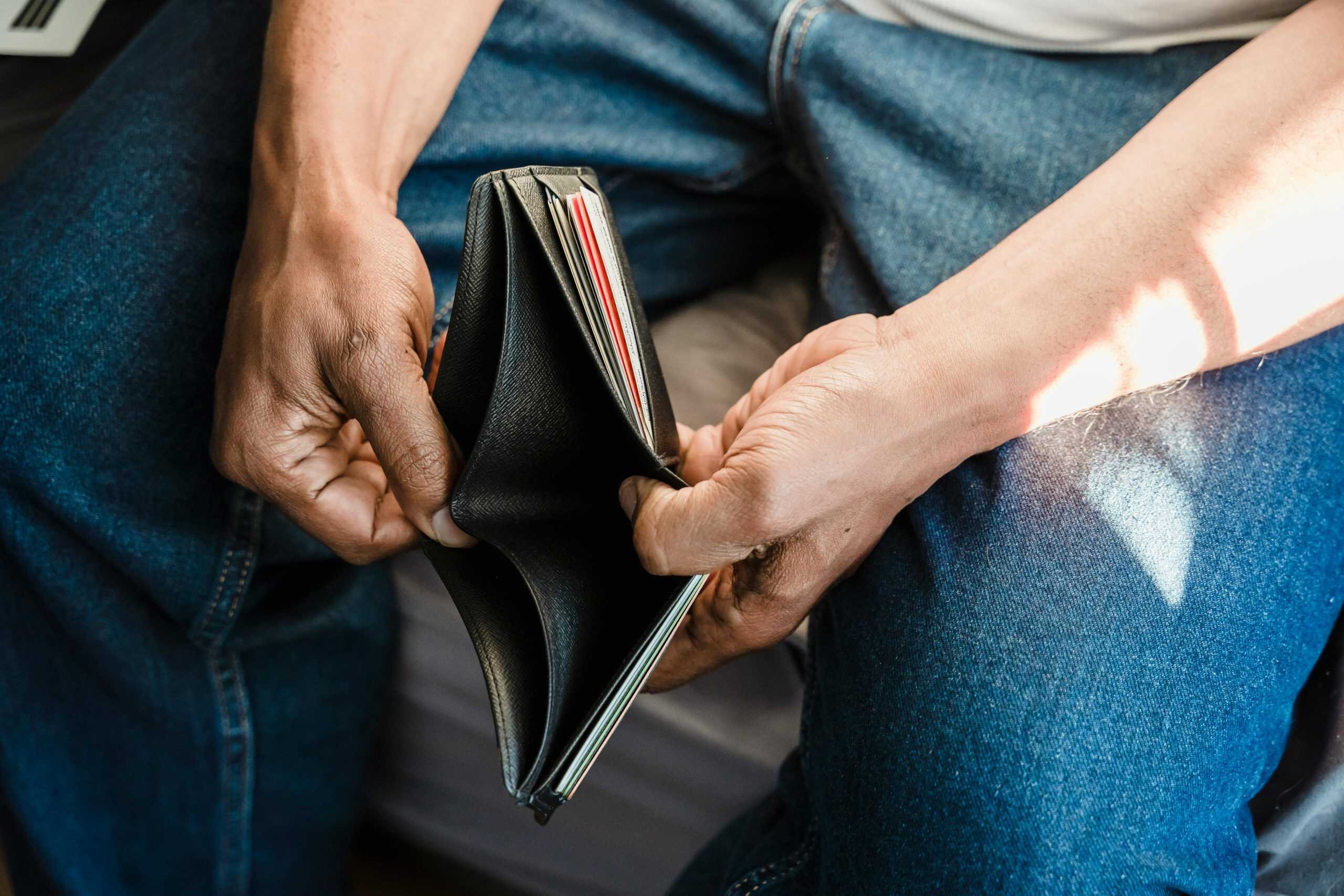Budgeting is tough, even in the best of times. But when everyone is telling you your budget needs to look like a 50/30/20 setup and you’re lucky if you can pull off a 60/0/40 plan, with zero left for wants or savings, it feels like the walls are closing in.
I get it. I’ve been there. It’s hard—and honestly, it’s downright depressing—to realize the bills are going to be late again this month. That hopeless feeling of trying to do everything right and still falling behind?
It chips away at your motivation. You start to wonder what the point of budgeting, or even continuing to try, is, especially when your credit card balances keep growing and there’s nothing left for anything fun.
You’re not alone. And you’re not a bad person because of it. A survey in 2024 at the National Foundation for Credit Counseling learned that 37% (more than one in three people!) missed at least one bill payment in the past year.
There could be several reasons why your budget isn’t working, but it often comes down to the fact that there’s just not enough money.
The Real-World Problem with the 50/30/20 Rule
The 50/30/20 rule is a popular guideline for budgeting. It’s supposed to keep things simple: 50% for needs, 30% for wants, and 20% for savings or debt repayment.
But when real life intervenes—like sky-high rent, unpredictable bills, and a grocery cart that somehow costs 40% more than it did last year—that tidy little ratio can seem like a cruel joke.
If your budget has you living on much leaner splits, you’re probably feeling defeated, resentful, and maybe even ready to give up altogether.
The truth is, budgets are about more than just numbers. They’re about control, confidence, and freedom. When those are missing, it’s easy to just say, “forget it,” and swipe your way into a mountain of debt.
Want more?
Join us for updates and new information.
Because Googling “how to fix my finances” will only take you so far.
Sound familiar? Fortunately, there are several things you can do to make significant positive impacts on your situation.
1. Embrace Frugality as a Power Move
Frugality gets a bad rap, but it’s a powerful tool when you’re strapped for cash. It’s not about depriving yourself; it’s about making conscious choices to free up money for what truly matters.
Try something like this: Instead of spending $12 a day on takeout lunch, bring a homemade lunch for around $3. That simple swap could save you $45 a week. That’s almost $200 a month. That’s real money that can go toward bills, savings, or even a much-needed treat.
Get creative: Work the numbers on the cost differences between, perhaps, taking public transportation to work to save gas money. You can probably come up with several similar shortcuts.
2. Pay Yourself First (Even if It’s Just $5)
Even in a 60/0/40 budget, you should try to pay yourself first. It doesn’t have to be a lot. Even setting aside $5 from each paycheck can add up over time and build the habit of saving. When you treat savings as a non-negotiable expense, you slowly start building a safety net.
And here’s a practical idea: use a separate savings account that’s harder to access. Out of sight, out of temptation.
$5 isn’t going to make any difference on its own. The idea is that by putting small amounts aside, a significant amount will be available when the chips are down or an emergency happens.
It may sound silly, but paying for a car repair with cash actually feels great!
3. Rethink Your Needs vs. Wants
Sometimes, the line between needs and wants gets blurry. Do you need that streaming service, or is it just a really strong want? Cutting the fluff can help you get back to a more balanced budget.
You’ve probably heard it all before. Cut out the extras. But, cutting out ALL of the extras just plain sucks. I get it.
However, ask yourself what you’d rather have: this subscription or $15 more toward feeling content by knowing the bills are paid and the lights are still on? This kind of mindset shift can be tough, but it’s also incredibly freeing when you stop paying for things you don’t truly value.
From a practical standpoint, can getting outdoors, going for a walk, and chatting with the neighbors provide a sense of satisfaction? Would that be enough to replace the sensation of watching someone else’s life on TV?
4. Take the Emotional Weight Out of Budgeting
Budgeting is an emotional long game. Additionally, it’s not just numbers; it’s a reflection of your goals, fears, and values. If you’re struggling to stick to a budget, it might be less about the math and more about your approach. Are you trying to fix the long-term problem in a single month?
Start with something small. Instead of trying to fix everything overnight, focus on one improvement, like making your minimum payment on time this month, or find a way to shave $20 from your grocery budget. One small win at a time
As long as you’re here, why not start budgeting the right way? Grab the workbook that keeps your wallet fat and your stress low.
$12.95
.
Pro tip: Write down and record your successes. You deserve to feel good about every positive step!
5. Build a Zero-Based Budget
If you’re living in a financial straightjacket, a zero-based budget might help you break free. This approach forces you to assign every dollar a purpose, so nothing slips through the cracks.
It can feel strict, but it’s one of the most effective ways to keep your spending in check. You’ll know exactly where your money is going, and that alone can bring a sense of relief.
6. Look for Small Income Boosts
If your job offers overtime, figure out what an extra hour or two a week could bring in. It may not seem like much, but even an extra $30 a week can mean the difference between making a payment and missing it.
You might also consider picking up a small side hustle, babysitting, dog walking, or reselling things you no longer need. It’s not forever, but it can help you build momentum. You may even find something you like doing for a few hours a week as a bonus.
Don’t Give Up Budgeting When Money is Tight
If your budget feels impossible, remember that it’s not about being perfect. It’s about making progress. Small changes can lead to big results over time.
You’re not failing—you’re doing your best in a tough situation. That matters. And you’re not alone. You can find tools on the site to help you keep track of your money and begin making huge differences in your budget, control, and happiness.






Leave a Reply